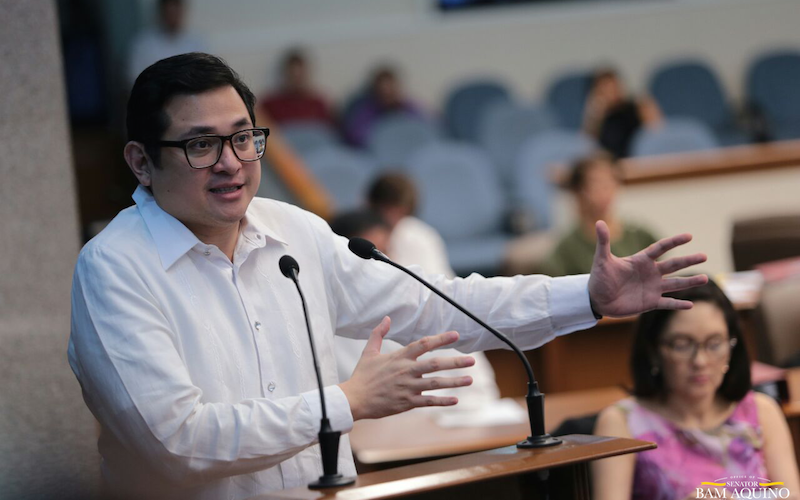Sen. Bam: IRR key to effective implementation of free college education law
Sen. Bam Aquino stressed the need to engage and consult stakeholders before the implementing rules and regulations (IRR) for Republic Act 10931 or the Universal Access to Quality Tertiary Education Act is finalized.
“There are still a lot of details to iron out before the Commission on Higher Education’s IRR is finalized. Umiikot kami sa mga state colleges and para kunin ang panig ng mga estudyante at administrators ng mga paaralan,” said Sen. Bam.
“It is important to engage with all the stakeholders and come up with a most effective implementation plan,” added Sen. Bam, the principal sponsor and co-author of the measure in the Senate during his stint as chairman of the Committee on Education.
As a revolutionary reform in education, Sen. Bam underscored the need to hold healthy discussions on how to craft an IRR that will ensure effective implementation, based on its original intention of the law.
“Mahalagang mapag-usapan ang bawat detalye ng batas sa pagbuo ng IRR. Masasayang lang ang napakalaking repormang ito sa edukasyon kung hindi matututupad ang pangunahing layunin nito,” added Sen. Bam.
Sen. Bam said other important issues such as summer and make up classes, residency issues, and grade requirements should be tackled.
“Though we are not part of the group finalizing the IRR, we are committed to sharing the comments, concerns and suggestions we’ve collated from students, parents, teachers and other concerned citizens,” the senator said.
The law will provide free education to students in SUCs, local universities and colleges (LUCs) and vocational schools under the Technical Education and Skills Development Authority (TESDA). Aside from tuition fees, the government will shoulder miscellaneous and all other mandatory fees.
Scholarship grants will also be made available to students of both public and private college and universities. Plus, it provides a new and improved student loan program, where students can apply for financing for other education expenses.
If fully implemented, Sen. Bam said the law will benefit around two million students in all state universities and colleges and Technical Education and Skills Development Authority (TESDA)-run technical-vocational institutions in the country.
In addition, students taking post-graduate studies can avail of the new and improved student loan program and scholarships under the law.
The measure was languishing in the legislative mill for years before it was passed during Sen. Bam’s time as chairman of the Committee on Education in the 17th Congress. This was Sen. Bam’s 19th law in his four years as senator.


Recent Comments